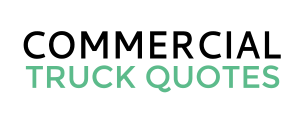“Thanks Fred. I’ve been thinking about getting into trucking insurance after quoting a few policies, and noticing that every truck I quoted was around $10,000 in premium. I am very interested in your product, but I need to understand trucking insurance more before I undertake this. Can you suggest where I can learn more about trucking insurance so that I can prepare myself?”
This message was from an agent that recently got in touch with us. He’s not unique. We come across agencies all the time that want to start writing truckers. In fact, we’ve helped several agencies that were new to trucking write over $1M/year. So, where do you go to learn about trucking insurance ?
Tap the Markets
A great place to start is with the markets: insurance carriers, MGAs, and trucking underwriters. Some carriers have materials that help educate agents new to the world of trucking insurance. Finding this information can help close a lot of gaps in your knowledge. Having a few conversations with trucking underwriters can also pay big dividends. Do your homework first, so you can ask intelligent questions, and then listen to every word they say.
Dive into the Community
Check out trucking insurance groups on LinkedIn. That’s a great place learn the lingo and what’s involved in writing commercial truck insurance. Put some feelers out to your peers. Chances are you know someone that already writes trucking insurance. Take them out to lunch and I’m sure they will be happy to lend a helping hand.
Focus on Cargo Insurance
The biggest difference between trucking and other commercial auto polices is the cargo insurance. It’s not hard to understand the physical damage and primary liability components of a trucking policy. The kicker is cargo insurance, because the policies themselves are complex. Understanding the different endorsements and exclusions is critical in making sure you create a policy that will cover the trucker based on their unique operation.
Other Quirks
Some other coverages unique to trucking include:
- Bobtail Insurance
- Non-trucking Liability
- Sometimes Inland Marine
Also, the insurance needs and requirements are different for different types of truckers. Here’s a few examples.
- Intermodal/Container Hauling (gotta know about UIAA requirements for these guys)
- Hazmat Haulers need more liability insurance among other things
- Refrigerated (Reefers) Trucks have more in depth cargo insurance considerations
- Intrastate vs Interstate Truckers
Filings
- Truckers have to have filings. Most are at the federal level, but some states also require filings as well. The filings needed depend on the truckers operation. You need to learn about filings like an MCS-90.
Authority vs. Leased Truckers
Lastly, know the difference between Truckers with their Own Authority, and truckers that are Leased to a Motor Carrier. Truckers that have their own authority are going to need all the coverages.
Truckers that are leased on to another motor carrier, are usually just going to need Physical Damage and Non-Trucking Liability. Their Motor Carrier usually handles the Primary Liability for them.
This may sound overwhelming at first, but it doesn’t take too long to get a lay of the land and soon you’ll be going after trucking premium that averages around $10k per truck!
Finding new trucking business to write
Once you have the background knowledge in place and a market to write with, our company can provide you with truckers looking for insurance, in real-time. Find out how our platform works here.

